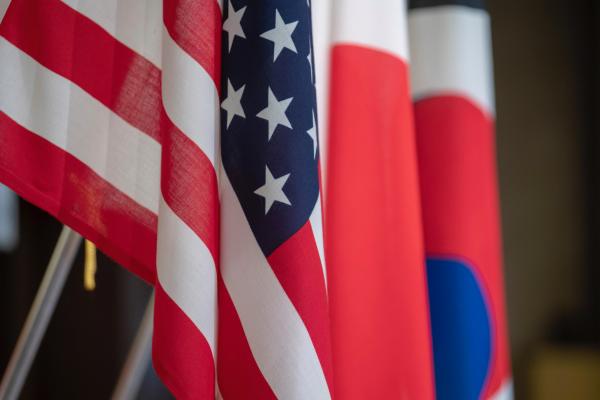Coinbase, one of the largest crypto exchanges globally, has been around for 10 years. And while the company has grown its offerings, products and services, its policy talking points haven’t changed dramatically, Kara Calvert, head of U.S. policy at Coinbase told TechCrunch+.
But what has changed, she said, is the “momentum and urgency” for digital asset legislation and rules at a federal level in the U.S..
“We need to have legislation now, we don’t want to be another year or two to three years out,” Calvert said. If U.S. agencies continue to move slowly on the regulatory front, builders will go overseas to other countries and regions like Singapore, the European Union and Hong Kong — all of which have provided more regulatory frameworks in the recent past.
There are two policy debates going on globally: the U.S. and the ex-U.S. policy debate, said Faryar Shirzad, chief policy officer at Coinbase. “The rest of the world, with few exceptions, has made the decision that they want to embrace crypto and web3 tech in some fashion,” he said. “They’re moving actively to develop a framework for rules and regulations to protect consumers and also encourage innovation.”
Regulatory uncertainty remains one of the biggest challenges and concerns for corporations and small players looking to build in the U.S., according to a recent report on corporate adoption by Coinbase and The Block.
Around 91% of surveyed executives agree that lack of clear regulation on crypto, blockchain or web3 make the space hard to navigate. The report also found that 52% of companies say they are holding off on major investments in the sector until regulation is established and they can feel more confident.
Legislation incoming
There may be potential for U.S.-based legislation to be written within the next six to 12 months, Calvert said. But it requires a “coalition of the willing” to come together and modify the current rules to fit the space.
After having tons of conversations with industry leaders in D.C., Shirzad said there are about 20 to 40 politicians who see the potential for digital assets and embrace it and only two Congress members who are “adamantly” against it, though he didn’t name them. “We try to talk to everyone, critics, those who see potential and those in between.”
Shirzad said it is possible for legislation to come within this year or next given how aggressively the rest of the world has been progressive on that front. “As each successive jurisdiction moves, the others emulate and take learnings from them,” he said.
“Congress needs to step up [and there’s] interest in doing that,” but Calvert said she thinks there’s still an overall lack of willingness to understand the technology, consumer expectations and the market in general at the federal level. But at the state level, there’s more hope, she thinks, given that Coinbase has registered for BitLicense, trust charters and other titles.
“One of our principal long-held positions is ensuring blockchain technology, smart contracts and decentralization can continue to flourish,” Calvert said. She compared web3’s need for policy making to the early 2000s when the internet was beginning to boom and there were rules made that helped both the innovation and technology flourish for builders and users at the time.
And it’s not just Coinbase; around 92% of surveyed participants in the corporate adoption report believe policymakers should develop new rules that are right for these new technologies, instead of enforcing older rules that were developed for older technologies.
Outside of the U.S.
While Coinbase is best known for being an American-based company, Shirzad said it’s looking to expand internationally.
Looking at it from a global perspective, there isn’t much divergence between countries’ and regions’ regulatory approaches. The overall attention is “maturing and solidifying” for policymakers, which is needed if the industry wants to progress, Shirzad said. “The global approach has been positive,” Shirzad said.
This isn’t limited to just the crypto space; attention is being paid toward other technologies like artificial intelligence, too, as global players consider the need and how to regulate these evolving industries.
“It doesn’t matter where lines are drawn, we’ll build to those lines,” Shirzad said. “But we can’t deal with a lack of clarity; the uncertainty is not healthy.”
